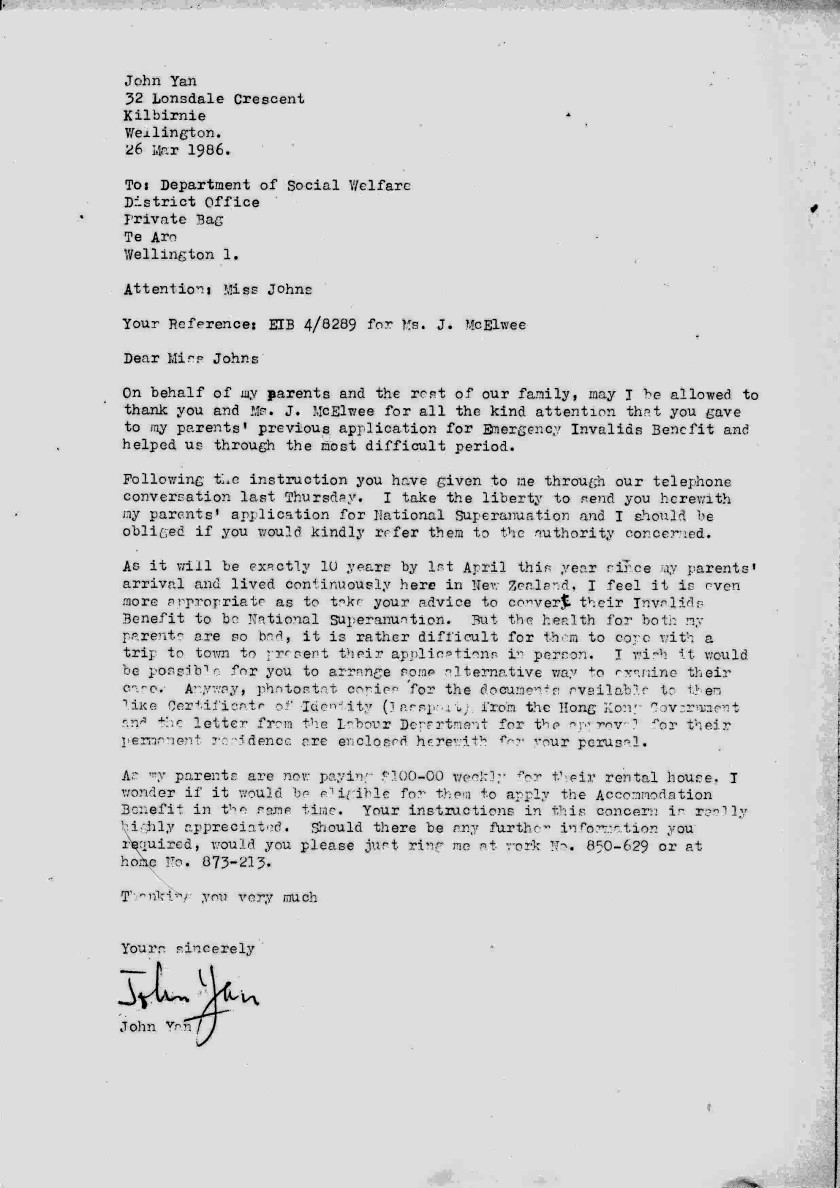How interesting to find a photocopy of a letter my Dad wrote to the Department of Social Welfare in 1986, to apply for National Superannuation on behalf of his parents.
We had been here less than a decade, but, frankly, Dad’s correspondence was always like this. The whole idea of immigrants coming to Aotearoa with limited English always smacked of racism and intolerance to me, and this letter illustrates that it might actually be our linguistic superiority in mastering another tongue that has racists and xenophobes worried.
There are some minor errors here, and he could have used a few commas instead of full stops, but it’s on a par with period correspondence from native Anglophones.
I still have this Underwood typewriter.








Your father’s writing seems impeccable to me, Jack. Perhaps you recall I promote more use of full stops, for I see even the most native of English speakers incorrectly use commas. I regard his choices of full stops as something they would do much better to emulate.
My personal experiences have been mixed, but I would say it seems to be more a matter of socioeconomic class and profession (and schooling required by said profession), than it has ever been about race specifically.
Granted, my experience is somewhat limited, mostly as I speak Spanish as a secondary language. But I reckon it’s about what you may expect. The laborers and working class immigrants tend to know less English, with the professionals with better school opportunities in their home countries knowing more. The first generations might know little, but their children, the second generations, are pretty fluent in both their native tongue and English. My mother had a Slavic ESL student many years ago (before her career in the Social Security Administration) who was acquiring English as his seventh language.
But I reckon you’ve made similar observations years ago, Jack. I don’t doubt I say things you already know. Both the missus (she goes by the pseudonym Huffle Mom, now) and I continue to practice our Latin American Spanish. My writing and listening fluency are much better, now, but my speaking fluency has lagged behind.
A quick story that comes to mind: we were at the pain management clinic for my 3-month follow up with a mestizo man that had vitiligo. He had a young mestizo woman there as his translator, and she would translate for us when our Spanish was lacking. But I found I could clearly understand everything she was translating for him.
It’s been too long, Jack.. my comment is again long for the usual blog etiquette, but you know me. I hope you and your partner are well and blessed.
It’s great to hear from you, J., and your length is quite welcome. We are so used to the tidbits of Tweets that long-form writing seems to have gone out the window. Real stories like yours make for good reading and insight. I had to look up mestizo. I’m happy to hear your Spanish is still doing well, and it’s probably natural for speaking to lag if we’re not forced to use it daily. I’m sure my French has deteriorated through lack of use.